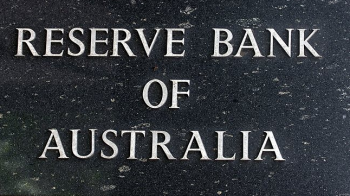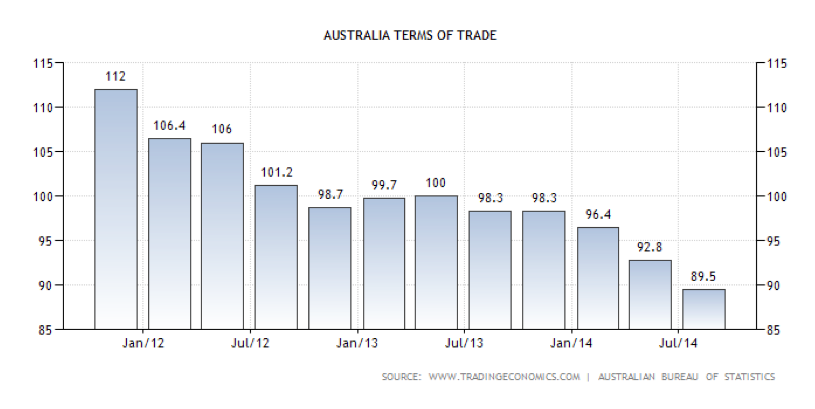
What are they thinking?
I didn’t think the Reserve Bank of Australia would cut just yet. David Buckland however did. You can find his call on the video. But it makes no difference to our investment strategy or long term results if we are right or wrong.
Here are Glenn Steven’s comments related to the decision. “At its meeting today, the Board decided to lower the cash rate by 25 basis points to 2.25 per cent, effective 4 February 2015.
Growth in the global economy continued at a moderate pace in 2014. China’s growth was in line with policymakers’ objectives. The US economy continued to strengthen, but the euro area and Japanese economies were both weaker than expected. Forecasts for global growth in 2015 envisage continued moderate growth.
Commodity prices have continued to decline, in some cases sharply. The price of oil in particular has fallen significantly over the past few months. These trends appear to reflect a combination of lower growth in demand and, more importantly, significant increases in supply. The much lower levels of energy prices will act to strengthen global output and temporarily to lower Consumer Price Index (CPI) inflation rates.
Financial conditions are very accommodative globally, with long-term borrowing rates for several major sovereigns reaching new all-time lows over recent months. Some risk spreads have widened a little but overall financing costs for creditworthy borrowers remain remarkably low.
In Australia the available information suggests that growth is continuing at a below-trend pace, with domestic demand growth overall quite weak. As a result, the unemployment rate has gradually moved higher over the past year. The fall in energy prices can be expected to offer significant support to consumer spending, but at the same time the decline in the terms of trade is reducing income growth.”
Note for Investors: Australia’s terms of trade is calculated as the ratio of export prices to import prices. If this index increases it implies that Australia is receiving relatively more for its exports; if it decreases then Australia is receiving relatively less. An increase in export prices relative to import prices implies that Australia is better off; thus an increase in the terms of trade is sometimes referred to as a favourable movement in the terms of trade. A fall in the terms of trade means that Australia must export more goods and services to maintain the same level of imports.
“Overall, the Bank’s assessment is that output growth will probably remain a little below trend for somewhat longer, and the rate of unemployment peak a little higher, than earlier expected. The economy is likely to be operating with a degree of spare capacity for some time yet.
The CPI recorded the lowest increase for several years in 2014. This was affected by the sharp decline in oil prices at the end of the year and the removal of the price on carbon. Measures of underlying inflation also declined a little, to around 2¼ per cent over the year. With growth in labour costs subdued, it appears likely that inflation will remain consistent with the target over the next one to two years, even with a lower exchange rate.
Credit growth picked up to moderate rates in 2014, with stronger growth in lending to investors in housing assets. Dwelling prices have continued to rise strongly in Sydney, though trends have been more varied in a number of other cities over recent months. The Bank is working with other regulators to assess and contain economic risks that may arise from the housing market.
The Australian dollar has declined noticeably against a rising US dollar over recent months, though less so against a basket of currencies. It remains above most estimates of its fundamental value, particularly given the significant declines in key commodity prices. A lower exchange rate is likely to be needed to achieve balanced growth in the economy.
For the past year and a half, the cash rate has been stable, as the Board has taken time to assess the effects of the substantial easing in policy that had already been put in place and monitored developments in Australia and abroad. At today’s meeting, taking into account the flow of recent information and updated forecasts, the Board judged that, on balance, a further reduction in the cash rate was appropriate. This action is expected to add some further support to demand, so as to foster sustainable growth and inflation outcomes consistent with the target.”
Roger Montgomery is the founder and Chief Investment Officer of Montgomery Investment Management. To invest with Montgomery, find out more.

Hi Roger
There is a great cartoon which concludes with a dog using an adding machine to try and figure to why the cat wants the dog to massacre him because he is unwilling to devour the mice who are suicidal because they can’t enjoy cheese anymore. After using the adding machine the dog concludes”…it just don’t add up!”
The stock market taking off out of its trading range with yesterday’s interest rate cut may feel like a good tummy rub, but …it just don’t add up. For the RBA to change their language so acutely is of concern. I’m selling into this and waiting for the next correction.
Best Wishes Jim
WHAT ARE THEY THINKING?
This:
Around the world, economies are slowing. This includes China, India, Canada and so on.
As always, the Keynesians want lower interest rates on short-term loans. Rates are lower than they have been since the 1930’s, but this is not low enough for Keynesians. They want more central bank inflation to force down rates. They think another fraction of a percentage point cut will get the world’s economy growing strongly again. It won’t.
What will central banks do when the economies move into recession, which they surely will?
Keynesians are terrified of price deflation. The idea that consumers should benefit from falling prices is anathema to them. They are horrified at what is happening. They want central banks to inflate even more.
Keynesianism is a fancy form of mercantilism. Keynesians want the central bank to goose the economy. They want softer dollars. They want inflation. The idea of falling consumer prices terrifies them.
They run the central banks. They run the universities. They run businesses. Their anti-market, anti-consumer outlook dominates.
What is going to happen next is this :
It is a delight to watch. The new Greek government, which is Communism lite, is sticking it good and hard to the idiot European bankers who loaned Greece far more money than Greece is able to repay.
German bankers are in charge. Germany is like all other Western governments . . . except Greece. The bankers call the shots.
Greek banks have lost 40% of their stock market value since the election of this government a week ago. In Greece, bankers are not in charge any longer.